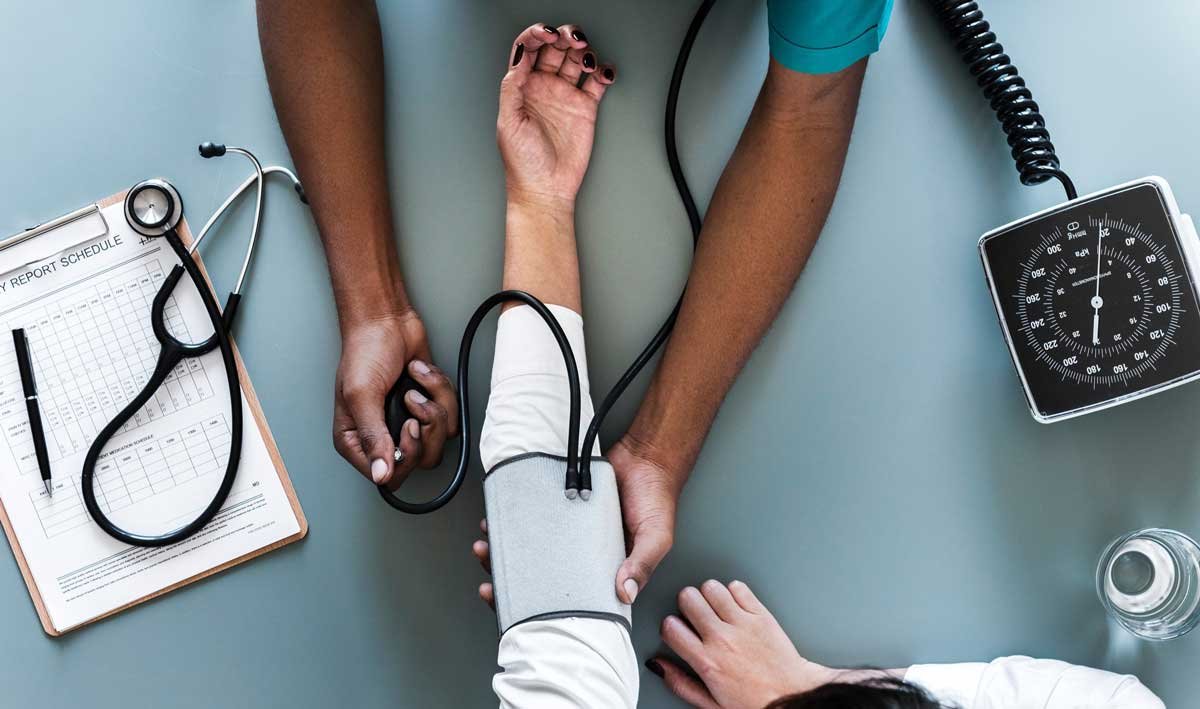Your health is something that’s probably always on your mind, even if it’s not at the forefront of it. After all, it has such a significant impact on both your quality of life and your lifespan, so worrying about it is only natural.
While there’s no age where your health becomes more or less important, certain issues can be more problematic at different stages of your life, Dr Soha says. By the time you hit 50, there’s a lot you can be particularly susceptible to, which is why it’s so important to get regular health checks.
This guide is here for you to get to grips with some of the problems you may encounter in the coming years and how often you should get checked for them.
Vision
Vision deterioration is a problem that’s often associated with age. As cells naturally grow weaker and die, you become more vulnerable to issues like glaucoma and macular degeneration. These aren’t life-threatening issues, but they can result in blindness, which will severely impact your later years.
Although you should get eye tests throughout your life, chronic eye conditions become far more prevalent with age. By your 50s, you should be visiting a specialist every year to ensure that you can both see okay and aren’t developing one of the above conditions.
The procedure is relatively quick and easy, and it will make a massive difference to how clearly you can see in the years to come.

Blood Pressure
High or low blood pressure isn’t exclusive to over 50s. Someone in their 20s can have just as significant a problem with this if they have a poor diet, unhealthy lifestyle, or are exposed to a ton of stress.
However, while this might be the case, issues with blood pressure are also something that becomes more likely with age. So, if your lifestyle isn’t the best and you’re over 50, you could be greatly at risk. What’s more, symptoms aren’t usually present with blood pressure problems. That means you could be making yourself more susceptible to something like heart disease or kidney failure without even knowing it.
Adults at this age shouldn’t be waiting more than five years between checks to ensure their blood pressure levels are still reasonable. If they aren’t, you’ll likely need to adopt some lifestyle changes and potentially take medication to reduce your chances of developing health-related problems.
Cholesterol
Another issue that doesn’t typically present symptoms and can become more troublesome with age is your cholesterol levels. This fatty substance can build up in your arteries during your lifetime, especially if you don’t follow a healthy diet.
While it can be problematic at any age, people in their 50s and above will have more time to build up cholesterol. That’s why a screening roughly every five years is vital to keep things in check.
If your cholesterol levels get out of control, your arteries could become narrow or blocked, leading to a heart attack. That’s not what you want, which is why a semi-regular blood test at the doctors is so important. Eating healthier and exercising can also help combat the risks of cholesterol if you’re worried about the potential dangers.
Dental Hygiene
Of all the things you’re already likely to get checked regularly, your teeth are probably at the top of the list. After all, most people grow up visiting the dentist several times a year until it eventually becomes a regular routine. Not everyone gets a dental check-up as often as they should, though, which can become problematic when you’re older.
For one, poor dental hygiene can lead to issues with diabetes, cancer, and heart attacks. With your age potentially making you more susceptible to illness, these aren’t risks you want to be exposing yourself to.
Another reason why it’s essential to see a dentist regularly when you’re 50+ relates to medication. The older you are, the likelier you are to take medication to deal with one problem or another. Unfortunately, many of these have dry mouth as a side effect, which is a leading cause of cavities in older adults. A dentist will be able to help you with this.
Those looking for a Mt Gravatt dentist in Brisbane will benefit from Pure Dentistry. They cover all the vital procedures, such as cleaning, filling, and crowns, as well as services like teeth whitening for a brighter smile. They can also help with dentures, something that you may eventually need to consider in later life. Their help will ensure that your dental hygiene doesn’t affect your health or your confidence, no matter what. As such, it pays to visit this Dentist in Murray Hill so you could stop any disease arising from poor dental hygiene.
Abdominal Aortic Aneurysm
Once you start moving towards the later stages of life, something you may need to prepare for is an abdominal aortic aneurysm. It most typically affects men over 65, but it can also be a slow grower that doesn’t necessarily present symptoms until things get bad.
It’s worth speaking to a doctor if you’re worried about this because your aorta bursting in your abdomen could have life-threatening consequences. An ultrasound will identify if there’s an issue, letting you know whether any treatment is necessary.
Osteoporosis
As you get older, it’s important that you take good care of your bones. After all, they can become weaker with age, meaning a greater risk of doing yourself harm.
Something that can contribute to this is osteoporosis, a condition that affects your bones, and therefore increases the likelihood of problems. Whether or not you develop this relates to whether you’re underweight, drink or smoke a lot, and if you do much exercise. However, it can also be influenced by calcium intake over the years, hence why it’s more problematic the older you get.
If you’re worried about this condition, an x-ray can check your bone density and see whether there are signs of osteoporosis. Lifestyle changes can obviously help too, but seeing a doctor will tell you whether these changes will help protect against the problem or simply reduce its severity.
Hearing
Much like vision, your hearing is something else that can deteriorate with age. It’s not uncommon for people to require hearing aids during their later years simply because they’ve been exposed to noise for years.
It’s not uncommon for people to require digital hearing aids during their later years simply because they’ve been exposed to noise for years.
Whether you notice signs of hearing issues or not, it’s still worth getting a test every two years once you hit 50. The changes won’t necessarily be notable to you initially, so it’s worth seeing what a specialist has to say. They’ll be able to identify things you won’t, allowing them to help you take good care of your hearing for years to come.
Just like vision tests, these are quick and easy, so you don’t have to worry about them intruding on your regular routine.
It can be unpleasant to think about all the health risks that seem to come with ageing, according to airoop. However, it’s better not to overlook them because this will only put you more at risk. The whole point of getting tested for these issues regularly is to put your mind at ease, although that may not work if doctors do find a problem. However, at least if they do, they’ll be better equipped to deal with it because they’ll have caught the issue in good time.

